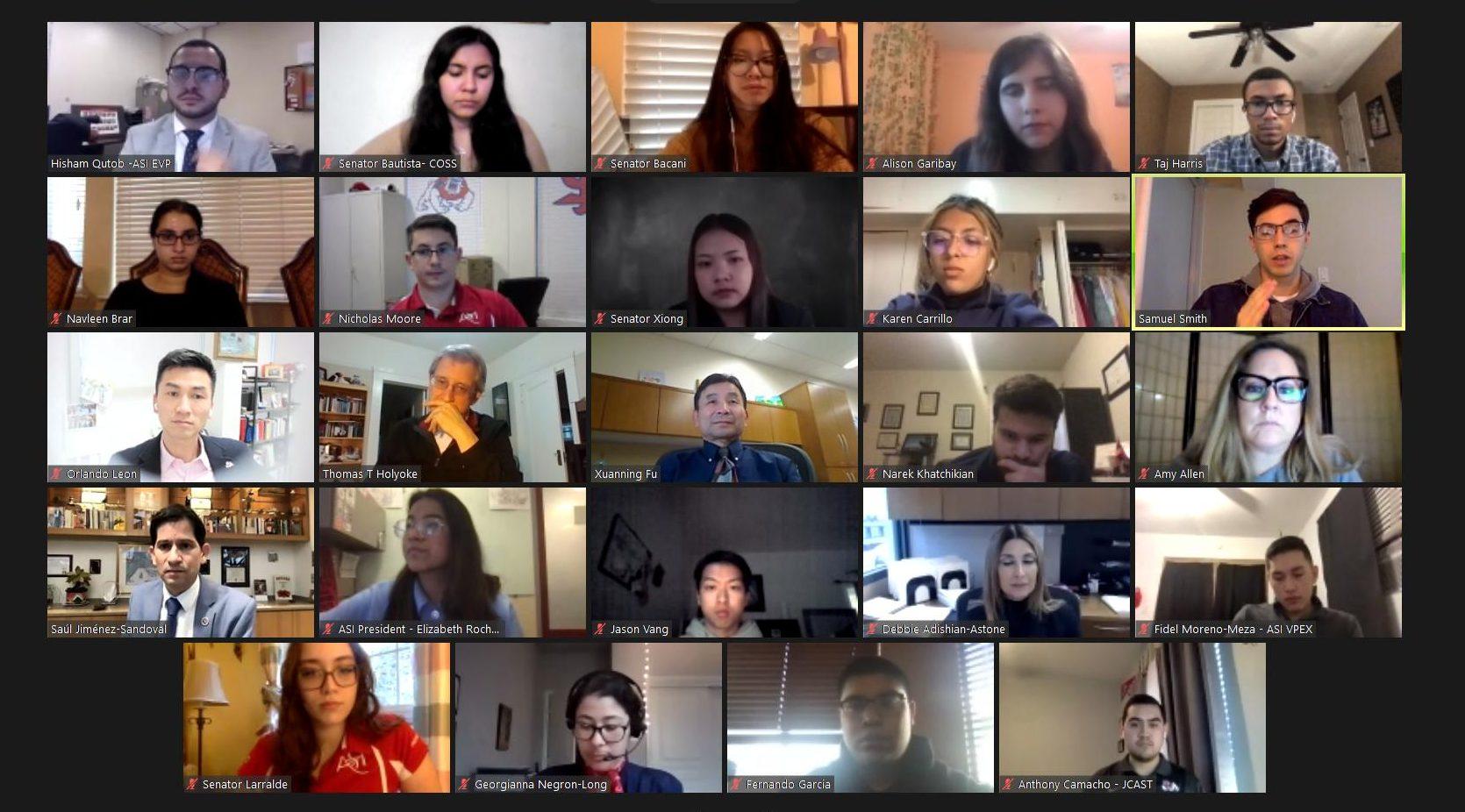Fresno State Interim President Dr. Saúl Jiménez-Sandoval outlined the administration’s plans to partially reopen the university for the fall 2021 semester on Jan. 27 during the Associated Students Inc. (ASI) meeting.
Interim Provost Xuanning Fu and Interim Director of the Office of Institutional Effectiveness Matthew Zivot are planning to create a campus-wide survey asking students if they plan to return to campus for face-to-face instruction if given the opportunity in the fall.
The survey results would allow the university to be able to find out what percentage of the Fresno State population has taken the vaccine.
By determining the percentage of students wanting to return to campus, the university would be better able to determine what classes would remain online and what classes would be in person for the fall 2021 semester.
Jiménez-Sandoval noted that the key factor in determining whether or not students and faculty can return to in-person classes is the rate at which the campus is vaccinated.
“The vaccination of our campus will be the fundamental factor that determines whether and to what scale we will return to fall 2021,” Jiménez-Sandoval said.
According to Jiménez-Sandoval, Fresno State at this time is unable to make the COVID-19 vaccine a requirement for the reopening of the fall semester.
As a result of the COVID-19 vaccine’s approval for use in an emergency state, Jiménez-Sandoval said students and faculty are able to opt-out of the emergency-use COVID-19 vaccine.
The only way for the COVID-19 vaccine to become mandatory would have to be through orders from the state government once the vaccine is classified by the federal government as a “non-emergency status vaccine”.
Jiménez-Sandoval emphasized the importance of the survey being answered as it would allow for the administration to better accommodate the incoming students and faculty.
When asked by Senator of Parking and Safety Julia Larralde regarding whether or not the classrooms would return to the pre-COVID-19 population, Jiménez-Sandoval said classroom population would be determined by the number of people vaccinated.
“The best-case scenario we have herd immunity and approximately 85% of the population is vaccinated … therefore we return to campus and what would be then protocols we follow at that time,” Jiménez-Sandoval said.
If the university achieves a favorable percentage of vaccinations, COVID-19 regulations could be eased, allowing for the increase of classroom sizes, Jiménez-Sandoval said.
“We could effectively say we still have to have the mask on when we are together and still do the washing… but we could possibly relax the six feet apart from the state government,” Jiménez-Sandoval said.
ASI guest speaker Georgianna Negron-Long of the Student Health and Counseling Center (SHCC) announced the expansion of several services provided in the SHCC.
As a result of the transition to primarily online service, the SHCC was able to expand upon the available services covering a variety of needs for students.
“A new group we created called Alone Together for students who might be struggling being isolated so they could be alone together,” Negron-Long said. “We also added another group about Meaningful Conversations About Grief.”
The SHCC currently offers 14 different support groups for a variety of student needs. Negron-Long noted that, while links to some groups are directly available on the SHCC, other groups would require students to call the health center to sign up due to their format.
Although a large part of the services for the health center are virtual, she said there are in-person services available at the SHCC such as crisis management or the pharmacy.
Negron-Long emphasized that students should take advantage of the services offered as they are included in the student fees at a little to no cost for students to use.




